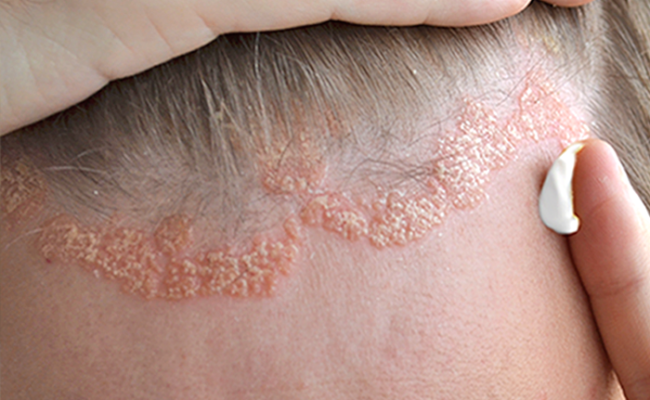Scalp Eczema: Symptoms, Causes & Treatment

Have you ever seen the white flaky skin falling off on the shoulder and wondered what this could be? Yes, anyone’s first guess would be dandruff but when clubbed with other issues like redness, itchiness and inflammation, it is also called scalp eczema.
It could be of different types and may disappear with time but could also stay for a long time without any known cause. The most common type of scalp eczema is known as seborrheic dermatitis, and its most unwelcome symptom is dandruff .So here is what you should know about scalp eczema and how can it be treated.

Symptoms
It may seem like dandruff in beginning but if you see red, itchy, white skin on your scalp including nose, eyebrows and eyelids, this could be it. If the infection spreads to the ear canal, you may also see fluid discharge. The skin around this area may also become greasy and blistered.
Causes
There is no known cause for scalp eczema but it could be triggered by a number of factors.
- Hormonal changes
- Illness
- Stress
- Harsh chemicals from detergents and soaps
- Heavy alcohol use or alcohol-based lotions
- Medications such as psoralen (for psoriasis), interferon, and lithium
- Heavy sweating
- Exposure to an allergen
Treatment
As mentioned above, there is no one treatment that can help with scalp eczema. Topical treatments including shampoos, gels and creams may be recommended. They primarily include zinc pyrithione, salicylic acid, ketoconazole and selenium sulfide. Natural remedies like tea tree oil and aloe vera may also soothe the irritated area. To prevent flare-ups, do your best to follow these recommendations:
- Avoid exposure to any suspected irritants and allergens.
- Clean your scalp thoroughly, but avoid drying it out by using only a quarter-sized dollop of a gentle shampoo and warm, never hot, water.
- Manage stress well.
- Shampoo your hair after sweating heavily, such as after a workout, since perspiration can be a trigger.
Consult a dermatologist to get suitable treatment.
RELATED ARTICLES





